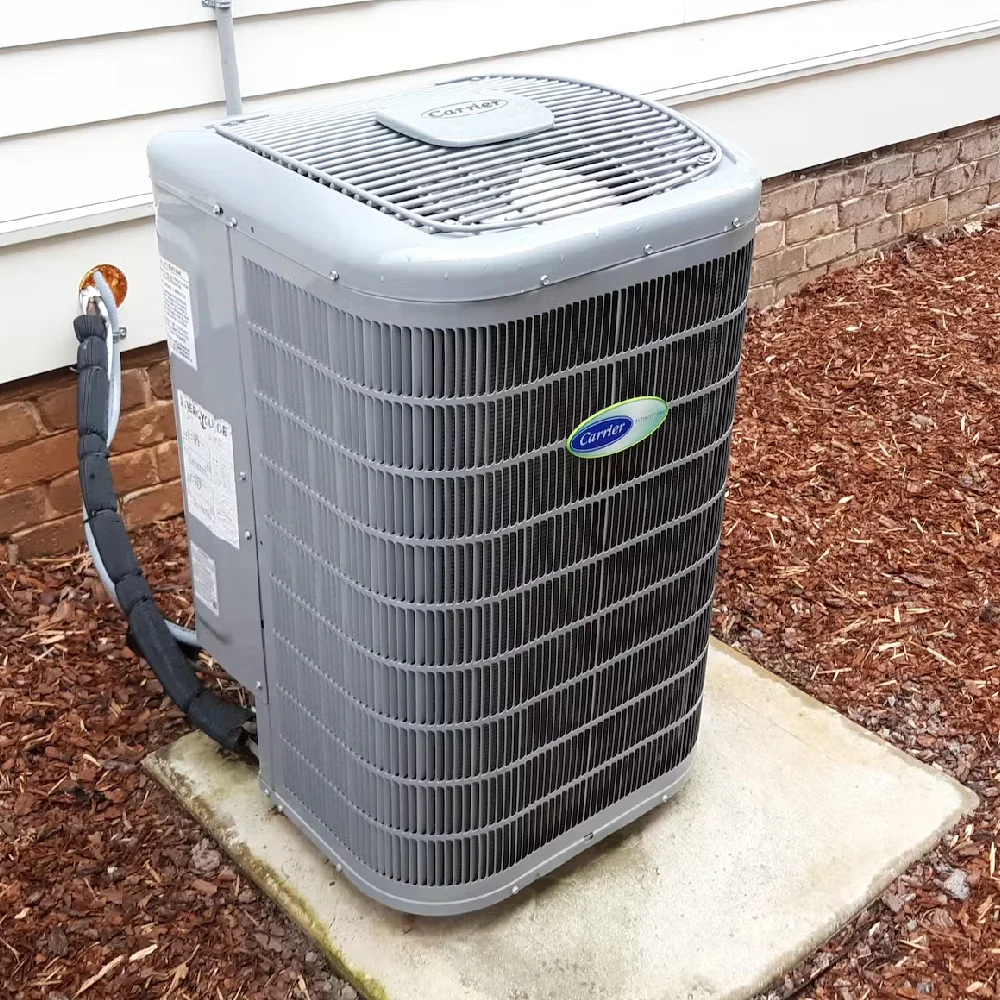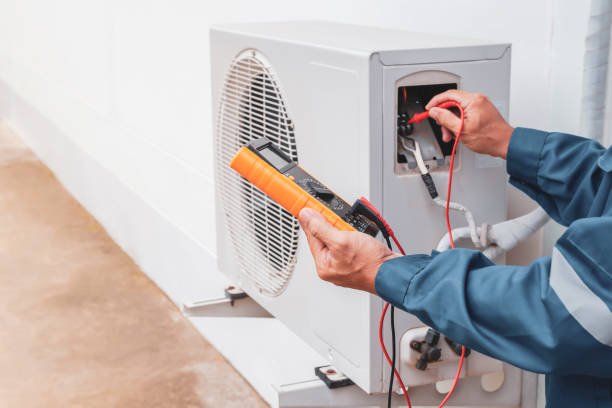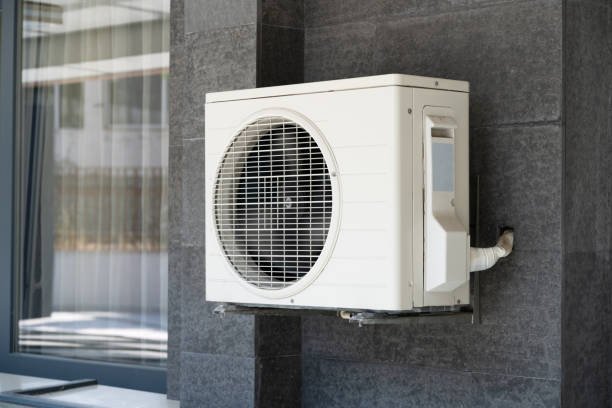When it comes to home comfort, few things are as crucial as a reliable air conditioning system. Whether you're battling the sweltering summer heat or simply trying to maintain a comfortable living environment, understanding AC replacement costs is vital for any homeowner. The right information can save you from unexpected expenses and ensure that you make an informed decision when purchasing a new unit.
In this comprehensive guide, we’ll explore everything you need air conditioning repair to know about AC replacement costs, the factors affecting those costs, and what options are available to you.
Table of Contents
Understanding AC Replacement Costs- 1.1 What Does AC Replacement Entail? 1.2 Why Is Knowing the Cost Important?
- 2.1 Type of Air Conditioning System 2.2 Size and Efficiency Ratings 2.3 Additional Installation Costs
- 3.1 Central Air Conditioners 3.2 Ductless Mini-Split Systems 3.3 Window Units
- 4.1 What Is SEER Rating? 4.2 Long-term Savings vs Initial Investment
- 5.1 Labor Costs for AC Installation 5.2 Hidden Fees in Installation
- 6.1 Removing Old Units 6.2 Upgrading Ductwork
- 7.1 Finding Reliable Air Conditioner Service 7.2 Importance of Choosing Local HVAC Repair
- 8.1 When to Repair Your Unit 8.2 Key Signs that Indicate a Replacement is Necessary
Choosing the Right Unit for Your Home
- 9.1 Assessing Your Home’s Cooling Needs 9.2 Factors in Selecting Size and Capacity
Financing Options for AC Replacement

- 10.1 Payment Plans and Credit Options 10.2 Rebates and Incentives
Maintenance Considerations Post-Installation
- 11.1 Regular Maintenance Schedules 11.2 DIY Maintenance Tips
Environmental Considerations in AC Choices
- 12.1 Eco-Friendly Refrigerants 12.2 Energy Star Ratings
13: AC Installation Near Me: Finding Local Help - The importance of local expertise
14: Frequently Asked Questions (FAQs) about AC Replacement Costs
15: Conclusion: Making an Informed Decision
Understanding AC Replacement Costs
What Does AC Replacement Entail?
Replacing your air conditioning unit isn’t just about swapping out an old machine for a new one; it involves evaluating your specific cooling needs, selecting a suitable model, and sometimes even upgrading existing infrastructure like ductwork or electrical systems.
Why Is Knowing the Cost Important?
Being aware of what goes into the cost of replacing your air conditioner helps you budget effectively, ensuring you’re not taken by surprise during installation or after your unit has been purchased.
Factors Influencing Air Conditioner Costs
Type of Air Conditioning System
The type of air conditioning system you choose will greatly influence its overall cost:
- Central air conditioners typically are more expensive due to their complexity. Ductless mini-split systems offer flexibility but may require significant upfront investment. Window units are usually cheaper but provide limited cooling coverage.
Size and Efficiency Ratings
The size of your new unit matters significantly; too small won't cool effectively, while too large can waste energy and lead to higher bills.
Table: Average Prices Based on Size & Efficiency
| Size (BTU) | Average Price | SEER Rating | Estimated Installation Cost | |------------|---------------|-------------|------------------------------| | <18,000 BTU | $300-$700 | <14 | $500-$1200 | | >18,000 BTU | $800-$2000 | >16 | $1000-$2500 |
Additional Installation Costs
Installation costs can vary widely based on location and other factors like:
- Geographic region. Specific requirements for installation. Local labor rates.
Types of Air Conditioning Systems
Central Air Conditioners
Central AC systems are often considered the gold standard for home cooling but come with higher initial costs.
Ductless Mini-Split Systems
Perfect for homes without ductwork, these systems can be more efficient but might involve higher labor costs due to installation complexity.
Window Units
A cost-effective solution for smaller areas or temporary setups; however, they generally lack efficiency when compared to central units.
Energy Efficiency and Its Impact on Cost
What Is SEER Rating?
Seasonal Energy Efficiency Ratio (SEER) is a measure of how efficiently an air conditioner operates over an entire cooling season.
The Benefits of Higher SEER Ratings
Higher SEER ratings often mean lower energy bills but come with a higher upfront cost as well.
Long-term Savings vs Initial Investment
It's essential to weigh initial purchase costs against long-term savings on utility bills when considering energy-efficient models.
Installation Costs Explained
Labor Costs for AC Installation
Labor costs can be significant; it's important to get multiple quotes from local HVAC services before making a decision.
Hidden Fees in Installation
Be wary of hidden fees related to permits or additional parts; always ask for a detailed breakdown before committing.
Common Additional Expenses
Removing Old Units
Disposal fees can add up; make sure your contractor includes removal in their quote or charges appropriately if it's separate.
Upgrading Ductwork
If your ductwork isn't compatible with the new system or needs repairs, that could dramatically increase your overall costs.
Selecting the Right HVAC Services
Finding Reliable Air Conditioner Service
When searching for "air conditioner service near me," look beyond just prices—consider customer reviews and service guarantees too!
Importance of Choosing Local HVAC Repair
Local technicians often understand regional climates better and may offer faster service than larger companies operating across broader areas.
Air Conditioning Repair vs Replacement
When to Repair Your Unit
If repairs are minor or infrequent, it may be more economical to keep your existing unit running rather than investing in a new one prematurely.
Key Signs that Indicate a Replacement is Necessary
Frequent breakdowns, high energy bills despite regular maintenance, or age over ten years are strong indicators it might be time for newer technology—consider consulting “AC repair near me” services if unsure!
Choosing the Right Unit for Your Home
Assessing Your Home’s Cooling Needs
Evaluate factors such as square footage, insulation quality, and ceiling height before purchasing your next unit—it ensures you choose one that fits perfectly!
Factors in Selecting Size and Capacity
Getting accurate measurements will help prevent underperformance or wasted energy due to oversizing—consult with professionals if needed!
Financing Options for AC Replacement
Payment Plans and Credit Options
Many HVAC services offer financing plans that break down payments into manageable monthly installments—you don't have to bear all costs upfront!
Rebates and Incentives
Explore potential rebates available through local utility companies or government programs aiming at promoting energy efficiency—this could significantly lower out-of-pocket expenses!

Maintenance Considerations Post-Installation
Regular Maintenance Schedules
Just because you've installed a new unit doesn't mean all's well forever! Schedule regular checks with "air conditioning repair near me" services to maintain peak performance levels throughout its lifespan!
DIY Maintenance Tips
Regularly cleaning filters yourself can improve airflow while reducing strain on motors—saving you money down the line!
Environmental Considerations in AC Choices
Eco-Friendly Refrigerants
Choose models using environmentally friendly gases; they tend not only protect our environment but often result in better efficiency ratings!
The Importance of Energy Star Ratings
Energy Star-rated products meet strict efficiency guidelines set by EPA—it’s always wise checking these certifications while shopping around!
AC Installation Near Me: Finding Local Help
Finding reliable local professionals simplifies communication during installations! Always consider proximity when searching “ac installation near me.”

Frequently Asked Questions (FAQs) about AC Replacement Costs
Q1: How much does it typically cost to replace an air conditioner?
A: The average cost varies widely depending on numerous factors including type and size but generally ranges from $3,000-$7,000 including installation fees.
Q2: Can I install my own air conditioning system?
A: While DIY projects are tempting; improper installation could void warranties or lead costly repairs later—always consult professionals first!
Q3: How long does an air conditioner last?
A: Most units last between fifteen to twenty years with proper maintenance—keep track of servicing schedules regularly!
Q4: Should I repair or replace my old unit?
A: If repairs exceed half the replacement cost—or if units frequently break down—it’s likely wiser investing in new technology instead!
Q5: Are there financing options available?
A: Yes! Many installers offer flexible payment plans tailored specifically toward helping homeowners afford high-quality equipment without breaking budgets upfront!
Q6: What should I do before installing my new system?
A: Prioritize assessing existing ductwork quality while ensuring proper sizing calculations based upon square footage—consulting experts ensures optimal results post-installation!
Conclusion: Making an Informed Decision
In conclusion, understanding AC replacement costs is crucial when considering upgrading your home’s cooling system effectively! By factoring various elements such as size requirements alongside potential long-term savings through energy-efficient technologies—you’re setting yourself up toward achieving greater comfort while maintaining financial health simultaneously! Remember never hesitate seeking guidance from local “air conditioner service” providers—they're invaluable resources along this journey toward enhanced indoor living conditions year-round!